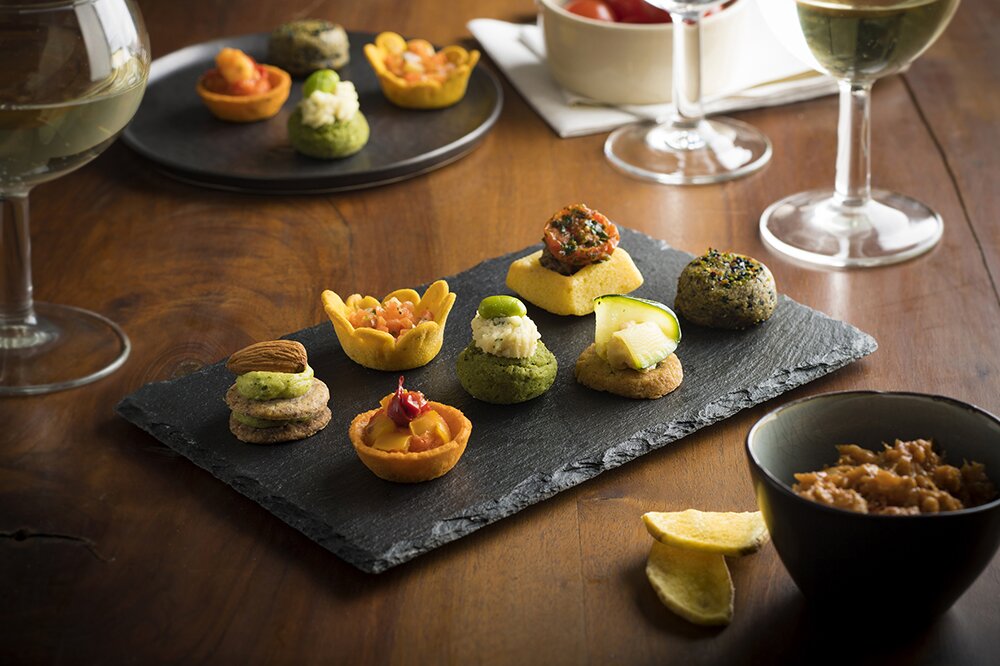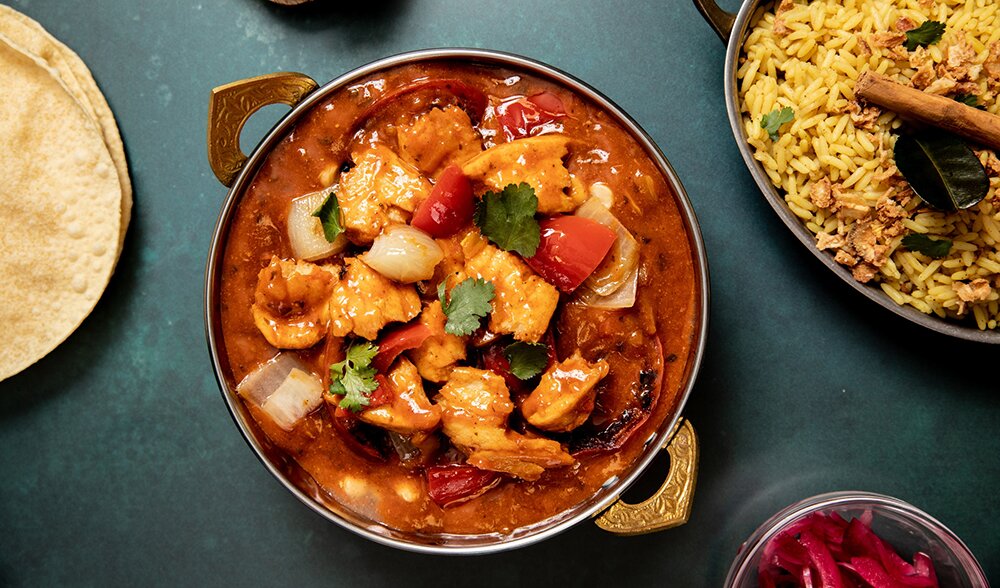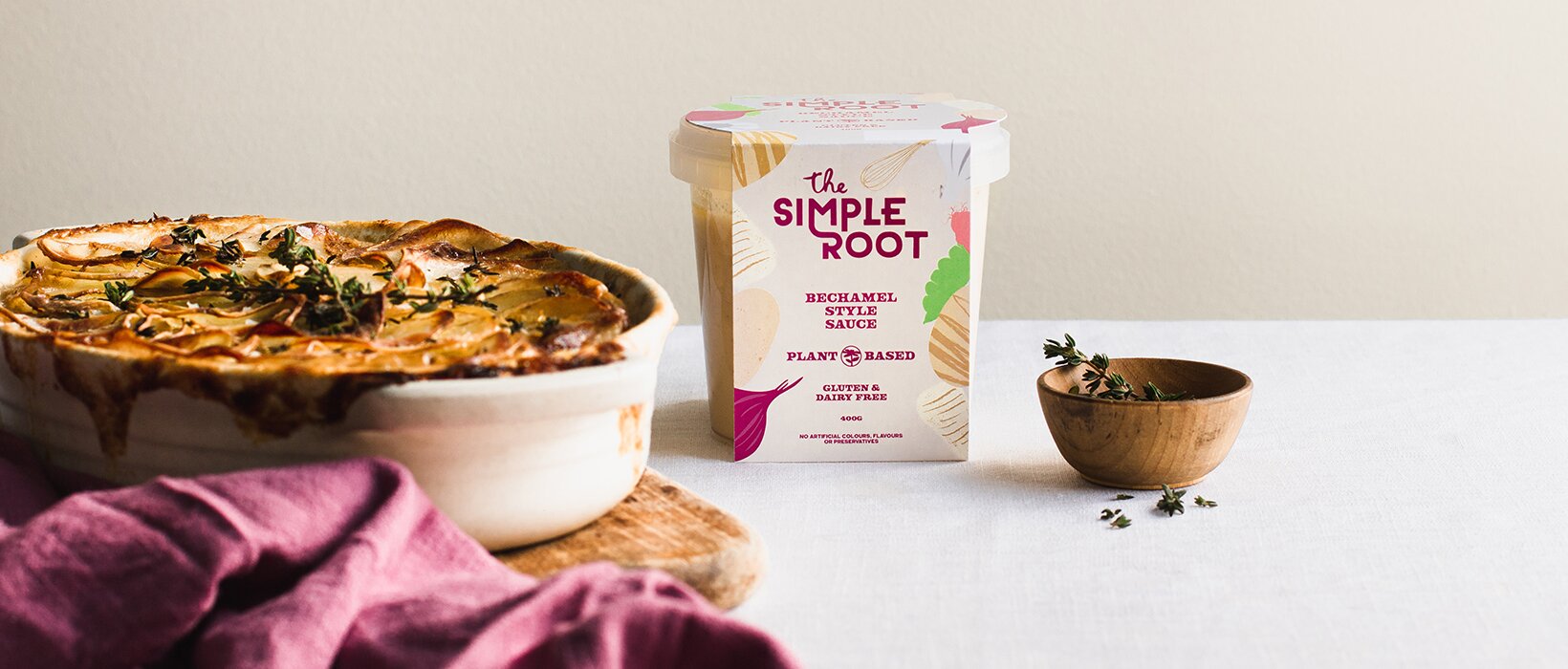Veganuary has been the catalyst for fresh new products
Veganuary has been the catalyst for a range of fresh new products and ideas to grace forward-thinking menus in the plant-based space
Veganuary’s challenge – to trial a vegan diet during January – is a New Year’s resolution with some sticking power. “Every year the Veganuary campaign prompts a new surge of vegan eaters. For some, it causes a full conversion to vegan eating, and for others it means simply occasionally going for the plant-based option. Either way, the impact of Veganuary should not be ignored,” says Kirsty Matthews, marketing and insights manager at Macphie.
The campaign has snowballed since its 2014 launch, when it had just 3,000 participants. Last year, a record 629,000 people took the challenge globally – and Kantar suggests that 10 times more people take part than register. The UK accounted for 458 of the 800 new vegan products launched worldwide to inspire chefs and diners, as well as 316 of the 740 new vegan menus added across chain restaurants.
This illustrates how vegan and plant-based dining has shifted from a token necessity on menus to a mainstream lifestyle choice, points out Hannah Lambert, Americana brand manager at Lantmännen Unibake. The key driver is meat- and dairy-reducing flexitarians motivated by personal or planetary health and animal welfare concerns. Nearly half (46%) of UK consumers aged 16-75 are considering reducing their consumption of animal products in the future, points out Vicky Tripp, campaign and brand manager at Bidfood.
“Look to introduce limited-edition plant-based specials to celebrate the event itself, with popular items remaining a permanent addition to menus after January,” advises Paul Stanley, foodservice manager at Middleton Foods, which offers a vegan burger mix based on millet, linseed flour, carrot and beet fibre, pumpkin seeds and tomato.
However, cooler weather, rising living costs and the usual post-Christmas cutbacks make it tougher to tempt customers through the doors adds Jason Fordham, customer insights director at Compleat Food Group, which owns the Squeaky Bean, Wrights and Vadasz brands. “Success in Veganuary will be down to meeting the needs of what can be a very diverse set of customers,” he adds.
“Veganism tends to have negative connotations versus plant-based, as traditionally people want to make decisions to be healthier without any of the emotional guilt of animal welfare. There is a degree of separation between the types of brands and meal solutions for full-time vegans versus flexitarians,” explains Nat Cooper, senior trade lead at Simply Roasted, which is positioning its low-fat, triple-roasted vegan crisps in healthier meal deals for Veganuary.

“Flexitarians tend to lean more towards swapping like-for-like products, such as the meat and dairy alternatives. Vegans and vegetarians appear to be more adventurous on new products, but also more likely to enjoy less-processed options, such as jackfruit, tofu and tempeh. A variety of traditional and international cuisines appears to be a good tactic.”
“Instead of using mock versions of meat and fish products, make your vegetables and plants the main star of your dishes,” suggests Tripp at Bidfood, whose new Meat Free Space collects cost-effective vegan and vegetarian ingredients, recipes and tips to “showcase the vibrant, flavoursome power of plants and spark some creativity on your menus”.
London eateries taking this approach include Eat of Eden with its Caribbean chickpea, plantain and pumpkin curries, and Japanese/Peruvian specialist Chotto Matte, which lists lychee ceviche and king oyster mushroom tostadas on its nine-course vegan menu.
Asparagus tartare with almond aioli and courgette spaghetti with chilli and lemon are on the new fully vegan set menu at Whitcomb’s at the Londoner hotel in Leicester Square, while new Mayfair hotel the Twenty Two has Veganuary specials that include polenta chips with aubergine ketchup and roasted broccoli with quinoa, gordal olive and a chickpea cracker.
Natural collection
Both Cooper and Ian Nottage, head of food development at Fresh Direct, believe that over-saturation in the prolific meat alternatives market is shifting focus towards natural pulses, grains (such as seitan), legumes and fresh vegetables. Pulled oyster mushrooms cooked with barbecue sauce or Asian spice provides a tasty version of crispy duck, notes Nottage, while the versatile beetroot – packed with fibre, colour and antioxidants – is the hero ingredient in Wright’s beetroot bourguignon. Its Mexican bean chilli, adds head of new product development George Tatlow, offers the bold flavours of Mexican, Indian and Asian cuisines.
Faux meats are easy to cook and consistent in quality, making them popular with quick-service restaurants and casual dining outlets, as well as being appealing to flexitarians, says Nottage. They are also more cost-effective, adds Gordon Lauder, managing director at Central Foods: “Vegan mince, for example, can be significantly cheaper than standard beef mince and provides a greater yield, so it’s a great meat swap in many popular dishes such as lasagne, chilli or bolognese.”
Wrights’ soya-based pasty and sausage roll – part of a vegan take on its best-selling meat savouries – were among its most popular launches last year.

According to Lantmännen research, gourmet vegan burgers are a leading choice for 22% of consumers whose favourite cuisines are Italian, American and British. This, suggests Lambert, gives caterers the opportunity to trade up with a choice of gourmet buns (such as its halal and vegan Americana range), toppings and relishes that reflect these preferences, with combinations such as vegan mozzarella with marinara sauce or barbecue tofu and mac and cheese.
Go for faux
Demand for more chicken-like dishes has been met by Quorn Foods’ mycoprotein-based ChiQin range of crispy wings and buffalo wings, buttermilk-style burger and vegan fillet. Central Foods’ brand new KaterVeg tempura-battered chicken nuggets and burgers, based on soya and vegetable protein, can be deep-fried or oven baked. Tindle’s malleable, mouldable faux chicken has found a home in hundreds of restaurants, from fine dining to street food, in dishes as diverse as sticky barbecue nuggets and wellingtons.
London’s Breakfast Club is the latest upmarket convert to Redefine Meat’s whole cuts and mince products, which are 3D-printed to replicate the texture and taste of meat. They are centre stage in its Veganuary offer of a veggie/vegan fry-up, posh bratwurst sausage sandwich and cheeseburger.
Launching into 200 supermarkets this Veganuary and in Bill’s restaurant group’s vegan full English Plant Plate is the soya and pea protein-based This Isn’t Streaky Bacon. Co-founder Andy Shovel hails it as the group’s most ‘hyper-realistic’ bacon yet, thanks to the olive oil-based Fat 2.0, which replicates meats’ juiciness as well as browning and crisping.
“With so much choice, veganism has become even more accessible and appealing among the generations,” concludes Stanley. “Nowadays, it is an expectation to see vegan options on a menu – not just as the odd item, either, but as a more comprehensive offering with greater choices and more creative dishes.”
New vegan products to market
“One of the trends we’ve seen appearing over the last year or so is the introduction of entire vegan courses for meals at events, especially at large functions,” reports Marie-Emmanuelle Chessé, international development project manager at frozen French sweet and savoury pâtisserie supplier Tipiak.
Its colourful vegan cocktail selection – which includes carrot, lemon and ginger mousseline tarts and sesame hummus; and courgette tagliatelle on courgette and pine nut shortbread – aims to take the heat off understaffed kitchens by appealing to vegans, vegetarians, flexitarians and meat-eaters.
Ready-made sauces offer an easy entry to the more exciting global cuisines and flavours that consumers hunger for, says Paul Saunders, marketing manager at Major International. Its vegan sauces, stocks and gravies include Korean, barbecue and Caribbean jerk Mari Base sauces, Keralan and Sri Lankan Asian pastes and a new wild porcini mushroom stock base.

Macphie’s newest vegan building-block sauce is a smoky taco sauce that can multi-task across a spectrum of vegan and non-vegan dishes, such as creamy pesto sauces, dips, and burritos.
Simple Root has replaced dairy with root vegetables in its innovative new line of healthy vegan cooking sauces (including a creamy pesto-style, a spicy satay-style sauce and truffle and cheese options) as well as an upcoming line of plant-based dips, cheeses and desserts.
Fordham of the Compleat Food Group predicts that gut-friendly fermented foods will be a key trend for 2023. The vibrant colours and textures of lines such as Vadasz’s pickles and kimchi and sauerkraut ferments will, he says, elevate vegan bowl foods, salads and sandwiches.
Eurest puts veg centre stage
‘Nudging’ is used to steer customers towards healthy and sustainable plant-based choices by workplace caterer Eurest, whose menu is now at least 50% plant-based.
This means placing vegan meals front and centre of counters and at the top of menus, as well as harnessing peer pressure by signposting “best-selling dishes to let consumers know which are the most popular amongst their colleagues,” explains head of nutrition and sustainability Rees Bramwell.
Eurest avoids labelling dishes as vegan or plant-based to ensure they remain accessible and appealing to customers who don’t identify as vegan or vegetarian.
Bramwell adds: “A seasonal vegetable and lentil rogan josh sounds more enticing than a vegan lentil curry, for example.” Its chimichurri cauliflower steak is popular among its meat-eating customers.
Suppliers
Bidfood www.bidfood.co.uk
Central Foods www.centralfoods.co.uk
Compleat Food Group www.compleatfood.com
Fresh Direct www.freshdirect.co.uk
Lantmännen Unibake UK www.lantmannenunibake.co.uk and www.americana.co.uk
Macphie www.macphie.com
Major International www.majorint.com
Middleton Foods www.middletonfoods.com
Quorn Foods www.quornfoodservice.co.uk
Redefine Meat www.redefinemeat.com
Simply Roasted simplyroastedcrisps.co.uk
Simple Root www.thesimpleroot.com
This this.co
Tindle www.tindle.com
Tipiak www.tipiakfoodservice.co.uk



















